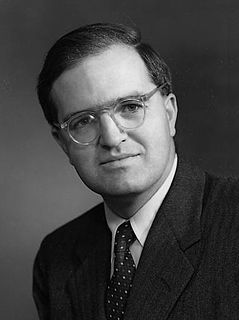A Quote by Thomas Kuhn
Groups do not have experiences except insofar as all their members do. And there are no experiences... that all the members of a scientific community must share in the course of a [scientific] revolution. Revolutions should be described not in terms of group experience but in terms of the varied experiences of individual group members. Indeed, that variety itself turns out to play an essential role in the evolution of scientific knowledge.
Related Quotes
Any group or "collective," large or small, is only a number of individuals. A group can have no rights other than the rights of its individual members. In a free society, the "rights" of any group are derived from the rights of its members through their voluntary individual choice and contractual agreement, and are merely the application of these individual rights to a specific undertaking... A group, as such, has no rights.
In order to have a large number of values in common, all the members of the group must have an equable opportunity, to receive and to take from others. There must be a large variety of shared undertakings and experiences. Otherwise, the influences which educate some into masters, educates others into slaves.
I have been shaped by the experiences of the people who are closest to me, by the things I've learned from [my wife] Martha, by my hopes and my concerns for my children, Philip and Laura, by the experiences of members of my family, who are getting older, by my sister's experiences as a trial lawyer in a profession that has traditionally been dominated by men.
... members of a powerful group are raised to believe (however illogically) that whatever affects it will also affect them. On theother hand, members of less powerful groups are raised to believe (however illogically) that each individual can escape the group's fate. Thus, cohesion is encouraged on the one hand, and disunity is fostered on the other.
Both for my wife and myself, the personal friendships that have grown out of scientific contacts with colleagues from many different countries have been an important part of our lives, and the travels we have made together in connection with the world-wide scientific co-operation have given us rich treasures of experiences.
Many philosophers say it's impossible to explain our conscious experience in scientific, biological terms at all. But that's not exactly true. Scientists have explained why we have certain experiences and not others. It's just that they haven't explained the special features of consciousness that philosophers care about.
The great scientific achievements are research programmes which can be evaluated in terms of progressive and degenerative problemshifts; and scientific revolutions consist of one research programme superceding (overtaking in progress) another. This methodology offers a new rational reconstruction of science.
The resolution of revolutions is selection by conflict within the scientific community of the fittest way to practice future science. The net result of a sequence of such revolutionary selections, separated by periods of normal research, is the wonderfully adapted set of instruments we call modern scientific knowledge.




































